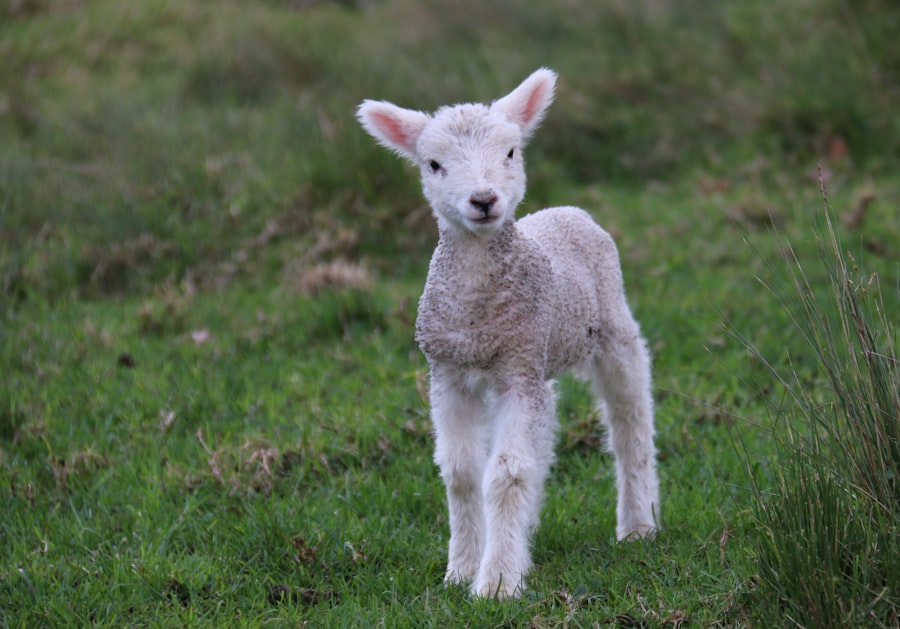Keeping geese, ducks, and chickens together in a mixed flock is becoming increasingly popular among poultry enthusiasts. This practice offers a range of benefits, including increased biodiversity, pest control, more efficient use of space, and enhanced egg production. While each species has its own unique needs and requirements, with proper planning and management, it is possible to create a harmonious and productive mixed flock.
Key Takeaways
- Keeping geese, ducks, and chickens together can be beneficial for both the birds and the owner.
- Understanding the unique needs of each species is crucial for successful mixed flock management.
- Choosing compatible breeds and providing appropriate housing and fencing is important for the safety and well-being of all birds.
- Feeding and watering requirements may vary between species and should be carefully considered.
- Proper health management, including disease prevention and monitoring social dynamics, is essential for a thriving mixed flock.
Benefits of Keeping Multiple Poultry Species
One of the main benefits of keeping geese, ducks, and chickens together is increased biodiversity. Each species brings its own unique characteristics and behaviors to the flock, creating a more diverse and interesting environment. This can be beneficial for both the birds themselves and the overall ecosystem.
Another advantage of mixed flocks is pest control. Ducks are known for their ability to eat insects and other pests, while geese are excellent grazers that can help keep grass and weeds under control. Chickens also contribute to pest control by scratching and pecking at the ground, eating insects and larvae.
Keeping multiple poultry species together also allows for more efficient use of space. Geese are large birds that require plenty of grazing area, while ducks prefer access to water. Chickens can make use of both land and water resources. By combining these species in a mixed flock, you can make the most of your available space.
Finally, mixed flocks can lead to enhanced egg production. Ducks are known for their high egg-laying capabilities, while geese are reliable layers as well. Chickens also contribute to egg production, with different breeds offering a variety of egg sizes and colors. By keeping multiple poultry species together, you can enjoy a diverse range of eggs for your own consumption or for sale.
Understanding the Needs of Geese, Ducks, and Chickens
Before creating a mixed flock, it is important to understand the specific needs of each species. Geese are social birds that require plenty of space for grazing and access to water for swimming. They also need protection from predators and shelter from extreme weather conditions.
Ducks, on the other hand, require access to water for swimming and foraging. They also need shelter from predators and a safe place to lay their eggs. Ducks have different nutritional requirements compared to geese and chickens, as they require a higher protein diet.
Chickens have their own set of needs, including access to both land and water. They require a balanced diet that includes grains, protein, and fresh greens. Chickens also need a secure coop for roosting and laying eggs, as well as protection from predators.
Choosing the Right Breeds for Your Flock
When selecting breeds for a mixed flock, it is important to consider factors such as temperament, compatibility, and egg-laying capabilities. Some breeds may be more aggressive or dominant than others, which can affect the dynamics of the flock. It is important to choose breeds that are known to be compatible with each other.
Certain breeds are better suited for mixed flocks due to their adaptability and ability to get along with other species. For example, some heritage breed chickens are known for their calm temperament and ability to coexist with geese and ducks. Similarly, certain duck breeds are known for their docile nature and compatibility with chickens.
Recommended breeds for mixed flocks include the Buff Orpington chicken, which is known for its friendly disposition and ability to get along with other poultry species. The Khaki Campbell duck is another popular choice, as it is a prolific egg layer and generally gets along well with chickens and geese.
Housing and Fencing Requirements for Mixed Flocks
Creating suitable housing and fencing for a mixed flock is essential for their safety and well-being. Geese, ducks, and chickens have different housing needs, so it is important to provide separate areas for each species.
Geese require a spacious and secure shelter that protects them from predators and extreme weather conditions. They also need access to a large grazing area. Ducks need a sheltered area for nesting and roosting, as well as access to water for swimming and foraging. Chickens require a coop that provides protection from predators and a comfortable space for roosting and laying eggs.
Fencing options for mixed flocks can vary depending on the size of the area and the specific needs of the birds. Electric fencing can be effective in keeping predators out and birds in, while also providing a visual barrier. Chicken wire or mesh fencing can also be used to create separate areas for each species within the larger enclosure.
Feeding and Watering Considerations for Multiple Poultry Species

Feeding and watering considerations are important when keeping geese, ducks, and chickens together. Each species has its own nutritional requirements, so it is important to provide a balanced diet that meets their needs.
Geese are grazers and require access to fresh grass and vegetation. They also benefit from supplemental feed that includes grains and protein. Ducks require a higher protein diet compared to geese and chickens, so it is important to provide them with appropriate feed that meets their nutritional needs. Chickens require a balanced diet that includes grains, protein, fresh greens, and calcium for egg production.
Watering needs also differ among the three species. Geese and ducks require access to water for swimming and foraging, while chickens need fresh water for drinking. It is important to provide clean water sources that are easily accessible to all birds.
Strategies for managing feeding and watering in mixed flocks include providing separate feeding areas for each species to prevent competition and ensure that each bird gets the appropriate amount of food. Similarly, providing separate water sources can help prevent contamination and ensure that all birds have access to clean water.
Health and Disease Management for Mixed Flocks
Keeping a mixed flock healthy requires proactive disease management and preventative measures. Each species is susceptible to different health issues, so it is important to be aware of common diseases and take appropriate measures to prevent their spread.
Common health issues in mixed flocks include respiratory infections, parasites, and nutritional deficiencies. Regular health checks, proper nutrition, and good hygiene practices can help prevent these issues. It is also important to quarantine new birds before introducing them to the flock to prevent the spread of diseases.
Treatment options for common health issues in mixed flocks include medication, supplements, and natural remedies. It is important to consult with a veterinarian or poultry expert for proper diagnosis and treatment.
Social Dynamics and Pecking Order in Mixed Flocks
Understanding the social dynamics and pecking order in a mixed flock is important for managing aggression and promoting harmony among the birds. Each species has its own hierarchy and way of establishing dominance.
Geese are known for their aggressive behavior, especially during breeding season. They may chase or nip at other birds, including ducks and chickens. Ducks are generally more docile but can still exhibit aggressive behavior towards each other or other species. Chickens also establish a pecking order within their flock, which can lead to aggression towards other birds.
Strategies for managing aggression in mixed flocks include providing plenty of space and resources to minimize competition. It is also important to monitor the flock closely and intervene if necessary to prevent injuries. Providing separate areas for each species within the larger enclosure can also help reduce aggression.
Promoting harmony in the flock can be achieved by introducing new birds gradually and providing plenty of hiding places and perches for birds to escape from aggressive individuals. Providing enrichment activities such as toys or treats can also help distract birds from aggressive behaviors.
Egg Production and Management in Mixed Flocks
Egg production in mixed flocks can be maximized by providing appropriate nutrition, proper lighting, and comfortable nesting areas. Factors that affect egg production include breed, age, health, and environmental conditions.
Strategies for maximizing egg production include providing a balanced diet that meets the nutritional needs of each species. Supplemental lighting can also be used to extend the daylight hours and stimulate egg production. Providing comfortable and secure nesting areas can encourage hens to lay eggs regularly.
Tips for collecting and storing eggs in a mixed flock include collecting eggs frequently to prevent them from being damaged or eaten by other birds. It is also important to clean and store eggs properly to maintain their freshness and quality.
Tips for Successfully Keeping Geese, Ducks, and Chickens Together
Keeping geese, ducks, and chickens together in a mixed flock can be a rewarding and enjoyable experience. By understanding the needs of each species, choosing the right breeds, providing suitable housing and fencing, managing feeding and watering, addressing health issues, managing social dynamics, and maximizing egg production, you can create a harmonious and productive mixed flock.
It is important to do thorough research and seek advice from experienced poultry keepers before starting a mixed flock. Each species has its own unique requirements and challenges, so proper planning and management are essential for success. With patience, dedication, and a little bit of trial and error, you can create a thriving mixed flock that provides you with eggs, pest control, and a diverse and interesting environment. So why not give it a try?
If you’re interested in keeping geese, ducks, and chickens together, you may find this article on Poultry Wizard quite helpful. It provides valuable insights and tips on how to successfully cohabitate these different poultry species. From understanding their compatibility to creating a suitable living environment, this article covers it all. To further enhance your knowledge on chicken coops, you can also check out their informative piece on renting a chicken coop. And if you’re curious about the natural hatching process of chicken eggs, Poultry Wizard has got you covered with another fascinating article. So why wait? Start exploring these resources now and become an expert in poultry keeping!
FAQs
What are the benefits of keeping geese, ducks, and chickens together?
Keeping geese, ducks, and chickens together can provide a variety of benefits, including pest control, fertilization of the soil, and a diverse range of eggs and meat.
What are some important considerations when keeping these birds together?
It is important to ensure that the birds have enough space to move around and access to clean water and food. Additionally, it is important to monitor the birds for any signs of aggression or illness.
Can geese, ducks, and chickens be housed together?
Yes, geese, ducks, and chickens can be housed together as long as they have enough space and access to food and water. However, it is important to monitor the birds for any signs of aggression or illness.
What should I feed my geese, ducks, and chickens?
Geese, ducks, and chickens can be fed a variety of foods, including grains, vegetables, and insects. It is important to provide them with a balanced diet that meets their nutritional needs.
What are some common health issues that can affect geese, ducks, and chickens?
Common health issues that can affect geese, ducks, and chickens include respiratory infections, parasites, and injuries. It is important to monitor the birds for any signs of illness and seek veterinary care if necessary.
Can geese, ducks, and chickens be kept in the same coop?
Yes, geese, ducks, and chickens can be kept in the same coop as long as there is enough space for all of the birds and they have access to food and water. However, it is important to monitor the birds for any signs of aggression or illness.
Meet Walter, the feathered-friend fanatic of Florida! Nestled in the sunshine state, Walter struts through life with his feathered companions, clucking his way to happiness. With a coop that’s fancier than a five-star hotel, he’s the Don Juan of the chicken world. When he’s not teaching his hens to do the cha-cha, you’ll find him in a heated debate with his prized rooster, Sir Clucks-a-Lot. Walter’s poultry passion is no yolk; he’s the sunny-side-up guy you never knew you needed in your flock of friends!







